
Noah Nicholas Beery was an American actor who appeared in films from 1913 until his death in 1946. He was the older brother of Academy Award-winning actor Wallace Beery as well as the father of prominent character actor Noah Beery Jr. He was billed as either Noah Beery or Noah Beery Sr. depending upon the film.

Noah Lindsey Beery was an American actor often specializing in warm, friendly character roles similar to many portrayed by his Oscar-winning uncle, Wallace Beery. Unlike his more famous uncle, however, Beery Jr. seldom broke away from playing supporting roles. Active as an actor in films or television for well over half a century, he was best known for playing James Garner's character's father, Joseph "Rocky" Rockford, in the NBC television series The Rockford Files (1974–1980). His father, Noah Nicholas Beery enjoyed a similarly lengthy film career as an extremely prominent supporting actor in major films, although the elder Beery was also frequently a leading man during the silent film era.
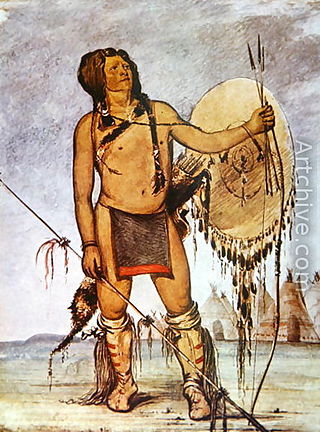
Comanche history – in the 18th and 19th centuries the Comanche became the dominant tribe on the southern Great Plains. The Comanche are often characterized as "Lords of the Plains." They presided over a large area called Comancheria which they shared with allied tribes, the Kiowa, Kiowa-Apache, Wichita, and after 1840 the southern Cheyenne and Arapaho. Comanche power and their substantial wealth depended on horses, trading, and raiding. Adroit diplomacy was also a factor in maintaining their dominance and fending off enemies for more than a century. They subsisted on the bison herds of the Plains which they hunted for food and skins.

Rifles for Watie is a children's novel by American writer Harold Keith. It was first published in 1957, and received the Newbery Medal the following year.

The Great Locomotive Chase is a 1956 American adventure western film produced by Walt Disney Productions, based on the Great Locomotive Chase that occurred in 1862 during the American Civil War. Filmed in CinemaScope and in color, the film stars Fess Parker as James J. Andrews, the leader of a group of Union soldiers from various Ohio regiments who volunteered to go behind Confederate lines in civilian clothes, steal a Confederate train north of Atlanta, and drive it back to Union lines in Tennessee, tearing up railroad tracks and destroying bridges and telegraph lines along the way.

The Godless Girl is a 1928 American sound part-talkie dramatic directed by Cecil B. DeMille. In addition to sequences with audible dialogue or talking sequences, the film features a synchronized musical score and sound effects along with English intertitles. The soundtrack was recorded using the RCA Photophone sound-on-film system. The cast features Lina Basquette, Marie Prevost, Tom Keene, and Noah Beery.

Renegades is a 1930 American pre-Code film directed by Victor Fleming for Fox Film. It stars Warner Baxter, Myrna Loy, and Noah Beery. Jules Furthman based his script on André Armandy's novel Le Renégat. Fleming shot in the Mojave Desert where the extreme heat proved a severe impediment to the production. Bela Lugosi has a relatively small role as the Marabout, a Rif sheik whom Loy's character manipulates, but his character is important to the story. An uncredited Victor Jory in his film debut plays a Legion officer. Critics mostly acclaimed the film as "a great action picture" and "a box office hit" that had to be held over.
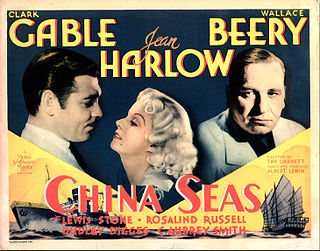
China Seas is a 1935 American adventure film starring Clark Gable as a brave sea captain, Jean Harlow as his brassy paramour, and Wallace Beery as a suspect character. The oceangoing epic also features Rosalind Russell, Lewis Stone, Akim Tamiroff, and Hattie McDaniel, while humorist Robert Benchley memorably portrays a character reeling drunk from one end of the film to the other.
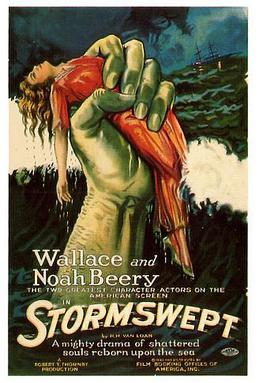
Stormswept is a 1923 silent film starring brothers Wallace Beery and Noah Beery. The advertising phrase used for the movie was "Wallace and Noah Beery, The Two Greatest Character Actors on the American Screen." The film was written by Winifred Dunn from the H. H. Van Loan story, and directed by Robert Thornby. A print of the film survives in London's BFI National Archive.
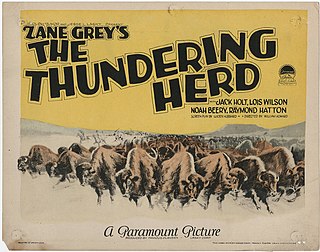
The Thundering Herd is a 1925 American silent Western film, now lost. It is directed by William K. Howard and starring Jack Holt, Lois Wilson, Noah Beery, Sr. and Raymond Hatton. Based on Zane Grey's 1925 novel of the same name and written by Lucien Hubbard, the film is about a trader who uncovers a scheme to blame the Indians for a buffalo-herd massacre. It was one of a series of critically and commercially successful Zane Grey westerns produced by Jesse Lasky and Adolph Zukor for Paramount Pictures.

Advance to the Rear is a light-hearted 1964 American Western comedy film set in the American Civil War. Directed by George Marshall, and starring Glenn Ford, Stella Stevens, and Melvyn Douglas. The film is based on the 1957 novel Company of Cowards by Jack Schaefer, whose inspiration was an article by William Chamberlain, published in the Saturday Evening Post in 1956. Chamberlain recounts the apocryphal Civil War stories of "Company Q", a unit composed of coward soldiers who are given a second chance to prove their bravery. The film had the novel title in pre-production and when released in the United Kingdom. However, the novel had none of the comedic elements of the film which retained only the basic idea of a unit formed out of men who had been court-martialed for cowardice and sent out west as well as some character names. The story may have been the inspiration for the later ABC-TV sitcom F-Troop (1965-1967)..

Old Wives for New is a 1918 American silent drama film directed by Cecil B. DeMille. It is based on the 1908 novel of the same title by David Graham Phillips.

Hangman's Knot is a 1952 American Western film written and directed by Roy Huggins and starring Randolph Scott, Donna Reed and Claude Jarman. The film is about a group of Confederate soldiers, unaware that the Civil War is over, who intercept a shipment of gold escorted by Union cavalry troops and are then pursued by a renegade posse. Hangman's Knot was filmed on location in the Alabama Hills in Lone Pine, California.

The Hills Run Red is a 1966 spaghetti Western film directed by Carlo Lizzani. The film stars Thomas Hunter in the heroic lead role, along with veteran American actors Henry Silva and Dan Duryea.
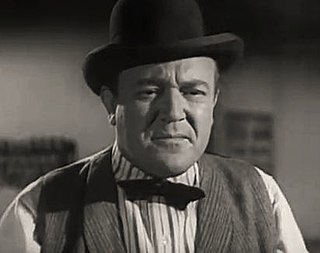
Hugh Sanders was an American actor, probably best known for playing the role of Dr. Reynolds in the movie To Kill a Mockingbird.
The Alpha Caper is a 1973 American made-for-television crime thriller film directed by Robert Michael Lewis. It stars Henry Fonda as an embittered parole officer forced into early retirement, who decides to take revenge against the city officials by stealing a gold shipment being moved to a new depository. The television film was the final production of producer Aubrey Schenck and was a television pilot for an American television series called Crime.
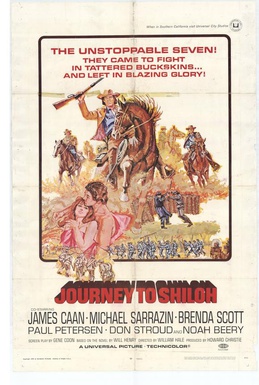
Journey to Shiloh is a 1968 American Western adventure film directed by William Hale and starring James Caan, Michael Sarrazin and Brenda Scott. The film is based on the novel of the same name by Will Henry first published in 1960.

The Last Outpost is a 1951 American Technicolor Western film directed by Lewis R. Foster, set in the American Civil War with brothers on opposite sides. This film is character actor Burt Mustin's film debut at the age of 67.

Wings of the Hawk is a 1953 3-D American Western film directed by Budd Boetticher and starring Van Heflin and Julie Adams. It is set during the Mexican Revolution.
Thomas William Simcox is an American film and television actor.


















